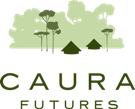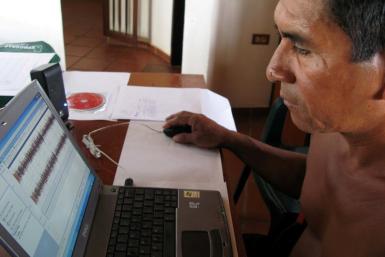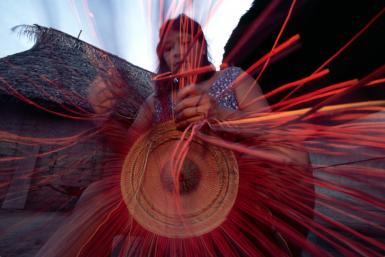Cultural Library
We can stall and then reverse the erosion of indigenous culture in the Caura River Basin by helping local people to systematically record the knowledge held by accomplished Ye’kwana and Sanema elders. Inexpensive digital audio and video equipment reproduces high quality recordings that approximate age-old oral traditions. Conservation of tropical forest and river ecosystems in the Caura rests on indigenous cultural practices and belief systems. Once this knowledge is lost, only the logic of settlers eking out a marginal existence in an unbalanced struggle with nature remains. This project demands urgent, sustained action. We have widespread involvement of local people, a large library building, and hundreds of hours of recordings done, but thousands yet to be made.
All over the world, indigenous cultures are disappearing. When knowledgeable elderly members of indigenous communities die these days, they take much more knowledge with them than they leave behind. This was not always the case. In the past, for example, Ye’kwana tradition involved frequent, informal apprenticeships to enable younger people to learn ritual chants, medicinal plants, mythology, weaving, construction and other skills from their elders. As in our own society, indigenous people differ greatly in the depth of their lifetime’s knowledge. Certain individuals stand out as experts in particular areas. In 2000, Caura Futures (then a project of EarthMatters.Org) sponsored a small natural history course centered around one such person, Edewudahuh, a noted medicinal plant, mammal and songbird expert. He taught the course, attended by both Ye’kwana and Sanema students, in the community of Edowinña. The modest course was a success. It resulted in a photographic record of over 50 medicinal plants and the oral transfer of what forest lore Edewudahuh imparted on daily walks during the month-long course. We planned a much more lengthy repeat, but Edewudahuh died just two months later back in his community, likely of curable malaria. This painful loss infused an urgency into our plans to record valuable knowledge.
We resolved to start a cultural library using digital technology to capture what was being lost. This project has been run by Emilio Rodríguez, the Ye’kwana founder of Edowinña. Emilio has made hundreds of hours of audio and video archives using digital audio and video recorders. In a breakthrough trip, he traveled for two weeks over the Pacaraima Mountains of the Caura headwaters into Brazil, where Yamajuumü (Vicente Yuduana), another renowned Ye’kwana elder lives. Yamajuumü is an advisor on medicinal plants to the Caura’s only shaman, as was Edewudahuh. In Brazil, Emilio made recordings for two weeks before returning.
We now have a 1500 square foot library building, built in traditional style, on 100 acres of riverfront property on the Caura River, outside of the port community of Maripa. This location is convenient for both road and river travel. It is a crossroads for indigenous trade and rural agrarian Venezuela.
The library will serve as a focal point for recording and learning knowledge. Archived recordings (copied in a dim archive with backup elsewhere in Venezuela) will be available for any indigenous person who want access to them. Older people who wish to record their knowledge will have a place to stay and do so, with an adjacent traditional dormitory and dining area. But filming and recording forays will also continue to outlying villages in order to document medicinal plant and other site-specific knowledge.
We anticipate that other indigenous groups of the Caura and beyond will use the library as a resource for developing their own similar projects.
Our principal current goal is to continue recording sessions. These will likely last several more years and will encompass various knowledge areas (for now, we have separated birds into a project of its own). We have additional infrastructure to build: completion of the library’s interior and two simple outbuildings, a dormitory and a dining building (also traditional structures). In addition, we will begin the process of disseminating copies of the material that has been collected into formats that can be accessed by several simultaneous users of the library. We will also support the training of indigenous archivists to use video and audio recording equipment. These archivists will focus on recording Ye’kwana and Sanema elders identified as having key areas of expertise. Finally, we will establish more robust, simplified, data archives in three distinct locations in Venezuela.


